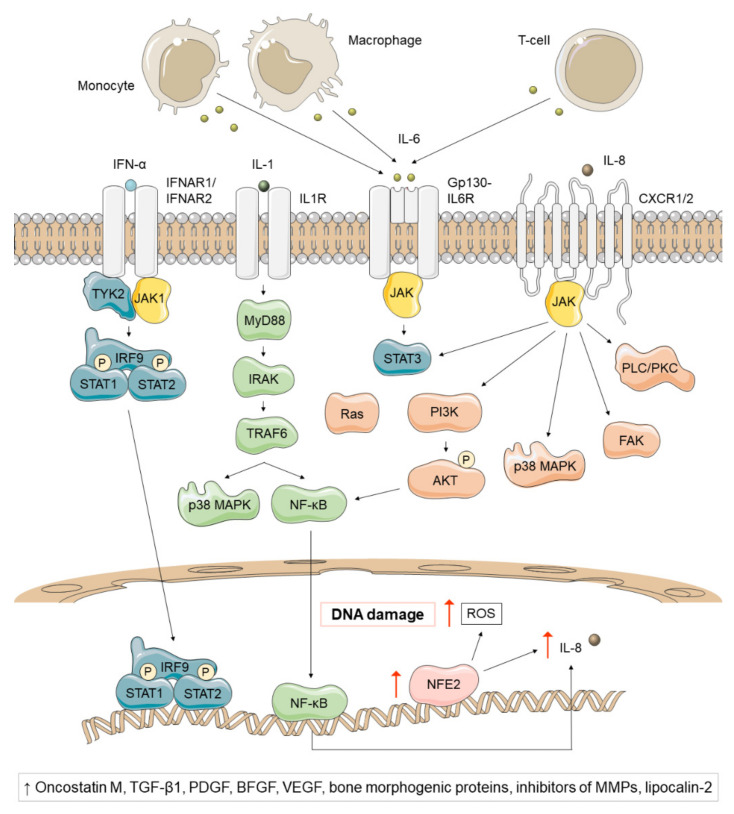Figure 4.
Non-canonical inflammatory signaling pathways affected in Ph-negative MPNs, regardless of subtype and driver mutation. The preleukemic niche of MPNs secretes high levels of IL-1, a proinflammatory cytokine that activates multiple downstream pathways, such as p38 MAPK and NF-κB. NF-κB, in turn, generates high levels of IL-8, a proinflammatory cytokine that binds to CXCR1 or CXCR2 and activates STAT3, PI3K/AKT, p38 MAPK, FAK and PLC/PKC. NFE2 overexpression has also been reported in most MPN patients and has been associated with high IL-8 levels and increased ROS and DNA damage. On the other hand, IL-6 is a proinflammatory cytokine produced by monocytes, macrophages and T-cells that signals via JAK1/STAT3, whose levels have been found elevated in JAK2V617F PV and PMF patients. Finally, IFN-α is a key regulator of hematopoietic stem cells (HSCs) that depletes previously dormant hematopoietic stem progenitor cells (HSPCs) and enhances the immune response. A pathogenic role of oncostatin-M, TGF-β1, platelet-derived growth factor (PDGF), basic fibroblast growth factor (BFGF), VEGF, bone morphogenic proteins, inhibitors of matrix metalloproteinases (MMPs) and lipocalin-2 has been suggested in Ph-negative MPNs.

